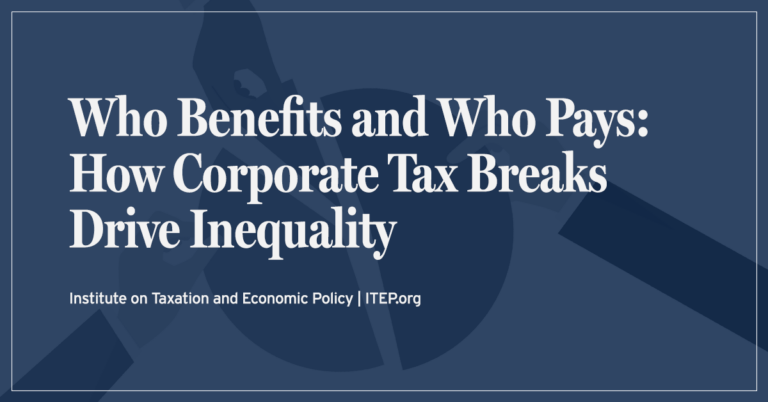This report, produced in partnership with Liberation in a Generation and co-authored by Jeremie Greer, Emanuel Nieves, and Solana Rice, delves into the intricate relationship between corporate tax policies and economic disparities. The findings reveal how corporate tax breaks and avoidance exacerbate racial and income inequalities, limiting public investments that could benefit everyone.
Corporate Tax Policies and Racial Inequality
Corporate tax breaks and avoidance significantly contribute to racial economic inequality. According to the report, 67 percent of U.S. households are White, yet they receive a disproportionate 88 percent of the benefits from corporate tax breaks that remain in the U.S. In stark contrast, Black and Hispanic households, which make up 12 percent and 9 percent of U.S. households respectively, each receive only 1 percent of these benefits.
The disparity in corporate stock ownership further exacerbates this inequality. The ratio of white wealth to Black wealth and white wealth to Hispanic wealth would be a fourth lower today if not for the disparities in corporate stock ownership. This highlights the urgent need for reform in corporate tax policies to address these imbalances.
Income Inequality and Corporate Tax Breaks
The report also underscores how corporate tax cuts and avoidance worsen income inequality. During the first year when a new corporate tax break is in effect, 58 percent of the benefits that remain in the U.S. go to the richest 5 percent of households, who disproportionately own corporate stocks. This leaves low- and middle-income households with very little benefit, further widening the income gap.
Impact on All U.S. Households
Corporate tax cuts and avoidance also negatively impact all U.S. households due to the significant ownership of American stocks by foreign investors. With foreign investors owning 40 percent of American stocks, U.S. households receive only 60 cents of every dollar in corporate tax reductions during the first year when a new corporate tax break is in effect.
Even if we assume that some benefits eventually trickle down to workers, as proponents of corporate tax cuts suggest, the conclusions remain unchanged. Reforming the corporate tax code is crucial for reducing both racial and economic disparities.
Read the full report here.






